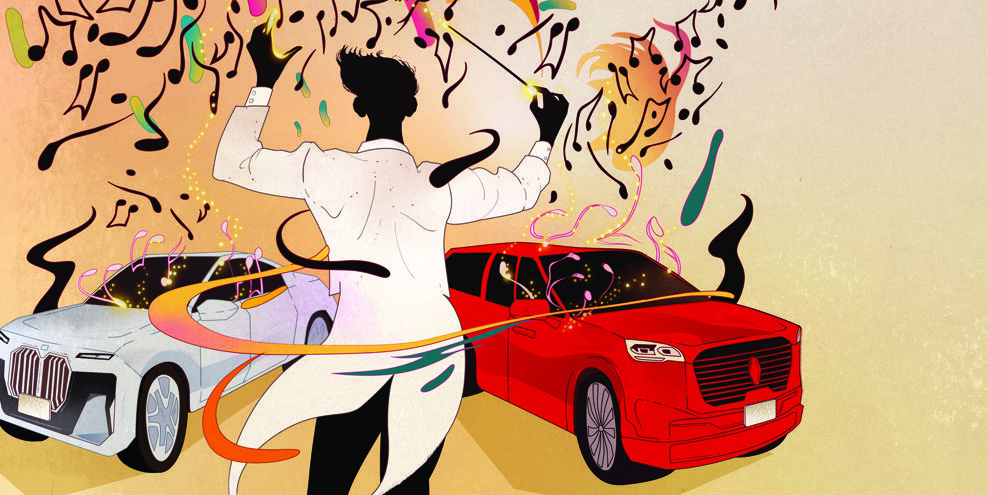Background Noise: Engineering the Sound of the Modern Car

From the September 2023 issue of Car and Driver.
Whether it’s for a warning chime to grab the driver’s attention or piped-in audio designed to give electric vehicles an acceleration note akin to that of an engine, automakers are working overtime to design brand-specific aural environments.
Creating a new and distinct sound is easy, but producing one that’s both pleasing and capable of relaying the implied message and its importance is far more challenging. That’s a key reason why a number of brands are outsourcing this task to audio professionals.
Lincoln, for instance, hired the Detroit Symphony Orchestra (DSO) to compose and record the informational chimes in its models, an idea that stemmed from the goal of creating a warmer and more human cabin experience. Jennifer Prescott, former supervisor of vehicle harmony at Lincoln, recalled reaching out to the DSO about the project, fearing the musicians would balk at the idea. Instead, DSO members playing string and percussion instruments produced more than 100 audio options for Lincoln, far more than needed.
BMW, meanwhile, contracted Hans Zimmer, a composer whose scores for The Lion King and Dune won Academy Awards, to work with its creative director of sound, Renzo Vitale, on a special acceleration noise for its battery-powered vehicles. The German automaker specifically sought out a cinematic acceleration sound to play up the emotional connection between driver and machine. Just as a film’s score heightens the emotion of a scene, Zimmer’s acceleration sounds aim to enhance the sensation of speed that an EV’s near-silent drive motor (or motors) can often fail to convey.
Sounds of Silence
A relaxing driving environment isn’t just about the pleasant sounds you hear. It’s also dependent on the sounds that don’t make their way into the cabin, including the whine of motors, the thrum of tires, and the whistling of the wind. We measure the sound pressure at the driver’s ear at idle, at wide-open throttle (WOT), and at a steady 70-mph cruise in every vehicle we test.
Car and Driver







